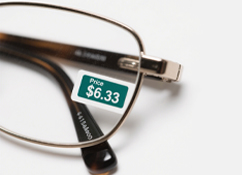Walk into any eye clinic, and you’ll hear the same complaint: “My eyes hurt.” The stories are usually similar: some feel pain, dryness, or a gritty sensation after staring at screens too long, staying up late, or reading in the dark. Others get sudden pain with no clear reason. Sometimes rubbing your eyes or resting helps, but other times the pain sticks around—getting worse, blurring your vision, and messing with daily life. If your eyes hurt, don’t brush it off—it’s worth paying attention to.

Straining your eyes is one of the top causes of daily eye pain. Staring at screens, books, or small text for hours tires out the muscles and nerves in your eyes. Plus, when you’re glued to a screen, you blink half as much as normal—making dryness and soreness worse.
What to do: Take regular breaks if you’re working or studying. Every 20 minutes, look at something 20 feet away for 20 seconds. Close your eyes for a minute, or try gentle eye rolls to relax tight muscles.
Between phones, TVs, and air conditioning, dry eye is on the rise—even in teens and young adults. When your eyes can’t stay moist, they feel scratchy, stinging, or like there’s something stuck in them. You might also tear up a lot, squint at bright lights, or notice blurry vision. Cold, windy weather makes it worse.
What to do: Eat more fruits and veggies (they’re rich in eye - friendly vitamins). Use a humidifier in AC - heavy rooms. Limit screen time to 40 minutes at a stretch. For bad dryness, try over - the - counter artificial tears. A warm compress (10 seconds in the microwave on a damp washcloth) can also soothe irritated eyes.

This is inflammation of the thin membrane (conjunctiva) that covers the white part of your eye and lines your eyelids. It’s often caused by bacteria, viruses, or even fungi. Along with pain, you’ll likely see redness, tearing, discharge (goopy stuff), or itchiness.
What to do: Some mild cases go away on their own, but most need prescription eye drops or ointment. Bacterial or viral pink eye is contagious—don’t rub your eyes, wash your hands often, and keep your towels, pillows, and eye drops separate from others to avoid spreading it.
A sty is a red, sore bump on your eyelid or the thin membrane over your eye, caused by inflammation (usually from a blocked oil gland). The area around it often swells up noticeably.
What to do: Use antibiotic eye drops or ointment (ask your doctor). If the swelling spreads or won’t go away after a few days, you might need a quick procedure to drain it—don’t try popping it yourself!
Your cornea (the clear front part of your eye) is loaded with nerves, so even a tiny speck—like dust, sand, or makeup—can cause sharp pain or irritation. It might even lead to infection if not removed.
What to do: If something gets in your eye, flush it with clean, lukewarm water right away. Don’t rub it or wipe with a tissue—you could scratch the cornea. If flushing doesn’t work, see a doctor to get it out safely. And if your eye gets hit (like from a punch or fall) and you have blurry or double vision, get medical help immediately to check for damage.
Glaucoma happens when fluid in your eye can’t drain like it should, causing pressure to build up. When pressure spikes suddenly, you’ll feel sharp, throbbing pain—often with blurry vision, headaches, nausea, or vomiting.
What to do: Go to the eye doctor right away. They’ll check your eye pressure and may use pressure - lowering drops, IV medications, or a quick procedure to release fluid. Acting fast is key to avoiding permanent vision loss.
This is inflammation of the optic nerve—the part that sends signals from your eye to your brain. Along with pain (which often gets worse when you move your eye), you might notice blurry vision, blind spots, or trouble telling colors apart.
What to do: See an eye doctor or neurologist immediately. They’ll find the cause (like an infection or autoimmune issue) and treat it to stop damage to the nerve.
This causes sharp or constant pain around the top of your eye socket (where the supraorbital nerve runs). It hits suddenly, can affect one or both eyes, and you’ll feel tenderness right above your eyebrow. It’s often tied to cold winds, stress, colds, injuries, or sinus problems.
What to do: Try warm compresses, over - the - counter pain relievers (like Tylenol or ibuprofen), or gentle massage on the tender spot. If that doesn’t work, a doctor might use a local injection to block the nerve. To prevent it: stay warm, rest enough, manage stress, eat well, and exercise to boost your immune system.
Caused by the same virus that causes chickenpox, eye shingles affects the eyelid area (controlled by the trigeminal nerve). You might feel burning or stabbing pain, plus red eyes, light sensitivity, tearing, mild fatigue, a low fever, or swollen lymph nodes. During an outbreak, you’ll get clusters of blisters on one side of your face—they never cross the midline. It can spread to people with weak immune systems.
What to do: Use antiviral creams and pills, plus pain relievers. To avoid long - term nerve pain, your doctor might add meds to nourish the nerves. Staying active, eating well, and keeping your immune system strong helps prevent it.
Mild eye pain from strain or dryness often gets better with rest. But call your eye doctor right away if:
Pain is sharp, sudden, or gets worse.
You have blurry vision, double vision, or blind spots.
Your eye is red, swollen, or has discharge.
You recently got hit in the eye or have a foreign object stuck.
Your eyes are delicate, and pain is often a signal something’s wrong. Don’t “tough it out”—ignoring it could lead to permanent vision loss. Listen to what your eyes are telling you, and get help when you need it. After all, clear vision keeps you connected to the world—take care of it!











